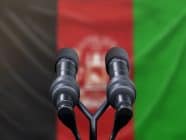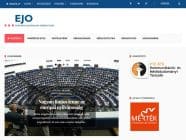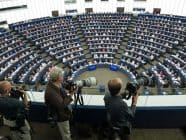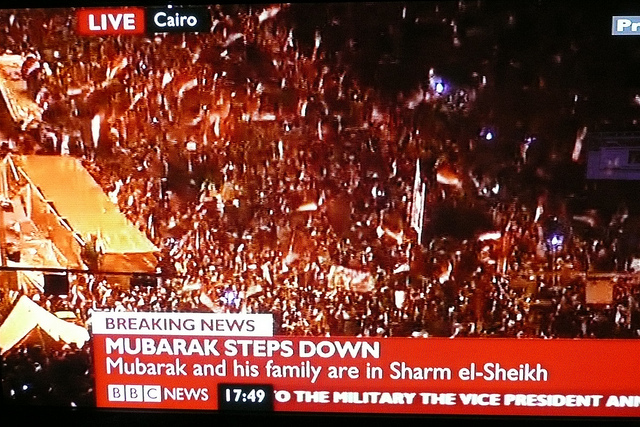Recently, Bill Keller, former executive editor of the New York Times, and Glenn Greenwald, the lawyer/blogger/journalist who broke the Snowden NSA story discussed opinions on the ethics and methods of journalism.
The recent debate on a shield law for journalists and their sources in the U.S. in the wake of the Snowden scandal has also raised questions about who should be considered a journalist. Should Julian Assange, currently exiled in the Ecuadorian embassy in London, be covered by such a law? To answer the question of how journalists themselves view WikiLeaks, Elizabeth Blanks Hindman (Washington State University) and Ryan J Thomas (University of Missouri-Columbia) analyzed how American newspapers dealt with the WikiLeaks controversy.
According to their research results, American newspapers were strongly critical of WikiLeaks in their editorials, reinforcing the distinction between old and new media by “emphasizing the lack of discretion on the part of WikiLeaks” and sustaining the legitimacy of traditional journalism as “the sole and legitimate stewards of the public interest”. Moreover the researchers analyzed how editorials framed the tension between the public’s right to know and the government’s need to maintain national security. A surprisingly large number of analyzed editorials distanced themselves from WikiLeaks’ actions, on the grounds that certain information should be kept hidden from the public, supporting the realpolitik of national security. Smartly, researchers took a glance on how newspapers editorials compared the WikiLeaks case with the 1971 Pentagon Papers, finding out that American journalists consider them as two different and distant cases. If whistleblower Daniel Ellsberg’s revelations about the Vietnam war are generally considered as an heroic act by American journalists, they have very little in common with what WikiLeaks brought to the public attention in 2010. The stateless organization is, according to research results, “depicted as being reckless and acting with total disregard for the consequences of its actions”.
In their conclusions, researchers highlighted some very good examples of newspaper positions. For instance, framing the “old vs. new media” tension, The Baltimore Sun wrote in 2010 that newspapers had to “respond to the actions of WikiLeaks with precisely the discretion and maturity that the group lacks”. The Daily News went even further in the same year by saying that Julian Assange is not a journalist but an “ex-grinding, anti-American criminal whose weapon happens to be information”. Several newspapers editorials stressed a “sharp distinction” between WikiLeaks itself and the media partners (Guardian, NYTimes, Der Spiegel) it selected to put out its megaleaks in 2010. For instance, The Charlotte Observer wrote in 2010: “The Times came in possession of this secret information. At that point, it could ignore it, in which case it would still become public worldwide through WikiLeaks […] Or it could provide the information in context, with analysis, carefully withholding any information it believed would jeopardize national security. That is what the Times did”.
The balance between the public’s right to know and the government’s need to hold secrets is less clearly addressed by newspapers editorials. Those newspapers supporting WikiLeaks did so with a quiet defence the free circulation of information. The St. Petersburg Times, for instance, wrote that “more and not less information is needed”. Those papers which, instead, attacked WikiLeaks and Julian Assange did it, “with great drama”, by stressing the point of U.S. national interests. The Oklahoman, for example, argued that “WikiLeaks founder Julian Assange clearly aims to harm US credibility if not its power”. According to the results of Hindman and Thomas’s research, newspapers believed that WikiLeaks “had no right to wear the mantle” of the Pentagon Papers. The main reason may be that newspapers wanted to define the release of Ellsberg’s leaks as something “they” did. In contrast to Wikileaks which is the product of a newcomer in the media landscape.
To conduct their study, researchers gathered all editorials published by American newspapers from November 28th 2010 (the date of the release of the Cablegate) and December 28th to deal with editorials that were covering the leak of the diplomatic cables in particular. Data were analyzed by an “ethnographic content analysis”. Research results show an interesting overview of how the American media framed WikiLeaks in the wake of the Cablegate release. Still, some empirical data could address in more detail how the coverage was distributed and by which media outlets.
Photo credit: Wikileaks Mobile Information Collection Unit / Flickr Cc
Tags: Assange, controversy, Glenn Greenwald, Journalism, Julian Assange, Media research, New York Times, newspaper coverage of WikiLeaks, old vs. new media, right to know, shield law, shield law for journalists, University of Missouri-Columbia, WikiLea












































